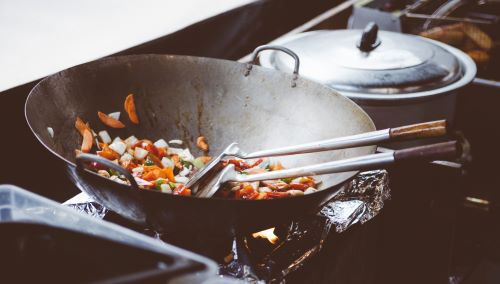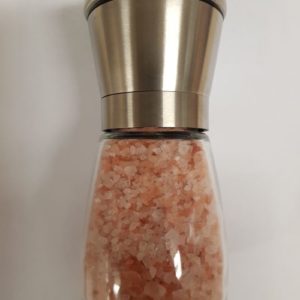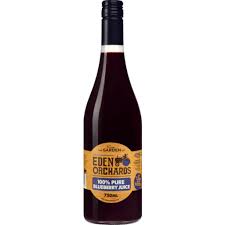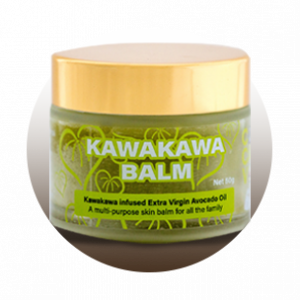
Cooking Oils and Smoke Points
Choosing the Right Cooking Oil is important
An integral part of cooking, Oils, which are also considered fats can be found in everything from salad dressings to marinades. Vegetable oils are also a widely used component in food manufacturing.
Most of us use oils for cooking. They are useful for stir frying, searing, frying, grilling & sautéing meats & vegetables.
However, not all fats and oils are created equal.
Oils are a products of pressing & extraction processes. Oil comes from seeds and nuts, like sunflowers, almonds, walnuts, olives, avocados, coconuts, and even rice bran. Each type of oil has its own chemical composition, which means some oils are better suited for salads, while others will help you achieve that perfect sear on a steak. One of the most important factors to consider when choosing your cooking oil is its “smoke point”.
What do you mean by Smoke Point?
The smoke point of oil is the temperature at which it stops shimmering in the pan, hot-plate or wok and starts smoking. The smoke point, also called the burning point or flash point of oil and can range from relatively low 160C to over 270C.
Why Is Oil Smoke Point Important?
Smoking oil is not always a problem as there are times when it can’t be helped such as when you’re stir-frying in an extremely HOT WOK, but generally smoking oil is a sign it is breaking down.
When oils break down, they can release chemicals that give food a burnt or bitter flavor, as well as releasing free radicals that can be harmful to the body. Before using any oil, make sure that its smoke point can handle the cooking method you plan to use.
How to Choose the Right Cooking Oil
When you enter a supermarket & stand staring at the cooking oils shelves, the options for oils seem endless. Remember though, not all oils are interchangeable, and some choices might even be inappropriate, depending on the dish you’re cooking or the cooking method.

Apart from a smoke point, there are 4 primary cooking oil characteristics you should consider the next time you reach for a bottle.
- Flavourful vs Neutral oil. Many oils have their own distinct flavours that can come through in the food being cooked. Sometimes, this is a desirable quality—for example, sesame oil imparts a distinctly Asian flavor to dishes. Extra Virgin Coconut oil imparts a strong, coconut flavour & aroma that might not be desirable. If you are making a salad or a low-heat dish, try experimenting with flavourful oils to see which flavours suit you best. If you do not want the flavour in a particular oil to come through in the food, then opt for neutral oils like refined coconut oil, but try to avoid cheap & nasty “seed” oils such as “vegetable” oil, canola oil & soy bean oil.
- Unrefined vs. refined oil. After oils are extracted or pressed, they can either be bottled immediately or refined and processed. Oils left in their natural state are labelled as unrefined, cold-pressed, raw, virgin, or extra virgin. These oils tend to retain flavours, as well as beneficial minerals, nutrients, and enzymes. However, some unrefined oils like Extra Virgin Olive Oil tend to have lower smoke points and can turn rancid on the shelf, so they’re best used for very low heat cooking or raw applications like salad dressings or finishing drizzles. Other extra virgin oils like Avocado Oil have a naturally high smoke point, so makes an ideal choice. Meanwhile, refined oils are processed through filtering, bleaching, or heating to remove the volatile compounds that break down in virgin oils. The resulting product offers a neutral taste, long shelf life, and high smoke point. Good choices are refined coconut oil, refined avocado oil and some refined olive oils.
- Omega-6 vs. Omega-3 fatty acids. Don’t fear fat. Fat is not necessarily a bad thing: in fact, certain fatty acids, including Omega-9 and Omega-3 fatty acids, are healthy for the human body. Oils high in these beneficial fatty acids include extra virgin avocado oil, Hemp Seed oil, and extra virgin olive oil. On the other end of the spectrum are Omega-6 fatty acids, which can cause inflammation in the human body. Oils high in Omega-6 (like almond oil) should be consumed in smaller quantities.
- Saturated vs. unsaturated fats. Saturated fats are commonly found in meat, cheese, butter, and many processed foods. Plant based sources of Saturated Fats are found in Coconut Oil & Palm Oil. Oils containing a lot of saturated fats are very stable for high heat cooking and have a long shelf life, so tend not to go rancid very easily. Saturated fats are not to be feared but should be used moderately. Unsaturated or monounsaturated fats, commonly found in nuts and seeds are packed with health. A good example is Extra Virgin Avocado Oil, a true super-oil.
In general, oils that are liquid at room temperature contain more unsaturated fat, while oils that are solid at room temperature like coconut oil, butter or lard, contain more saturated fat.
Here are our recommendations for cooking oils suitable for High Heat cooking:
- Extra Virgin Avocado Oil: good for searing, roasting, and sautéing, but also in vinaigrettes and as a finishing oil. Green colour and mild, buttery flavor. Also a perfect salad oil.
- Extra Virgin Coconut Oil: ideal for baking and sautéing. Strong coconut flavor which may be overpowering.
- Refined Coconut Oil: Neutral flavour & aroma
- Cocavo Blended Oils: Blend of coconut oil & avocado oil, perfect for frying or other high-heat cooking.
- Cocavo Sizzle & Drizzle Oil: Perfect for High Heat cooking. Dual purpose so also doubles as a salad oil.
- Cocavo HOT WOK Oil: Perfect for High Heat cooking. Dual purpose so also doubles as a salad oil.
Here are our recommendations for cooking oils suitable as Salad Oils.
- Extra Virgin Avocado Oil (also suitable for high heat cooking)
- Hemp Seed Oil
- Extra Virgin Olive Oil
.


Cocavo Original
Cocavo is made from premium all natural ingredients, providing a sweet and delicious, yet delicate flavor.
It is the perfect cooking oil to enhance a wide variety of dishes from curries to stir-fries. Cocavo is dairy free, gluten free and suitable for vegans and vegetarians.

Cocavo Light
Cocavo Light is made from pure coconut oil and extra virgin avocado oil. The delicious, buttery yet mild flavor does not have the aroma or taste of coconut making it the perfect cooking oil for everyday use.
Cocavo Light is dairy free, gluten free and suitable for vegans.

Chili and Lime
Cocavo is carefully infused with selected chili and lime oils giving you the perfect blend. Cocavo enhances and brings out the flavors in dishes from seafood to stir-fry. The subtle hint of chili is perfect.
Cocavo Chili and Lime is dairy free, gluten free and suitable for vegans.





